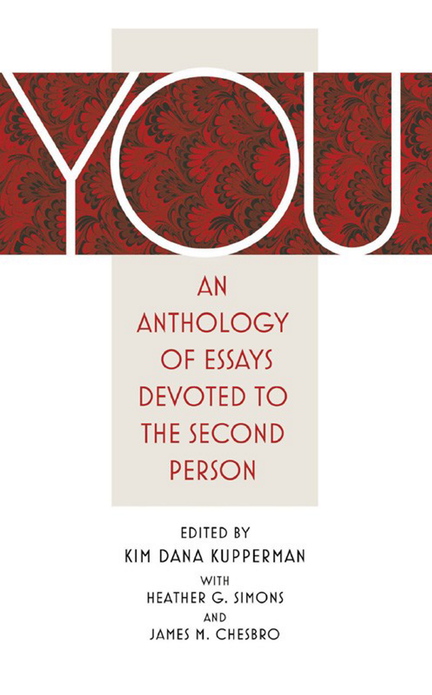Pity the poor essay. Despite its storied history in the framing of our nation – think Benjamin Franklin and Thomas Paine – it has long been an outcast in the publishing world.
True, magazines have printed essays under the guise of articles, stories and features, but book publishers continue to demur. Even in the age of Twitter, when brevity is king, the compactness of the essay remains underappreciated.
A new anthology may well change some of the old thinking about this maligned nonfiction form.
“You: An Anthology of Essays Devoted to the Second Person” is an adventure in literary daring. This will come as no surprise to those familiar with its publisher, Welcome Table Press, a nonprofit that originated here in Maine in 2002. Established in the Down East kitchen of Kim Dana Kupperman, who is both a contributor to the collection and its editor, Welcome Table has promoted the essay through readings, pamphlets and conferences. This new anthology may well be its most inspired and eye-opening venture to date.
Whatever you think about essays, this book will likely challenge your views. Its 34 entries run the gamut from a modest two-paragraph lyric piece on dreams to a 14-page interrogation of a grandfather, in which most sentences end with a question mark. In between are stories, musings and meditations; anecdotes, inventories and reprimands; vignettes and advisories – all written in the second-person, aimed at someone named “you.”
One quickly finds this rhetorical device compelling, in part, because you, the reader, are tacitly being spoken to. That’s part of the hook. Though the intended audience for each piece differs – sometimes the narrator is addressing herself, other times the recipient may be imagined or deceased – we instinctively respond to direct address.
As a result, these essays gather force by inviting us in and holding us close with their secrets, revelations and other enticements.
The standout pieces in the book tend toward extremes of scale and distance. Some are examinations of a moment, enlarged and detailed as if under a microscope; others are confrontations from afar.
In Marcia Aldrich’s “The Reading,” a writer travels to Iowa City to give a reading, only to find that she left her manuscript at home. This deft story-within-a-story about a mother’s fading memory, and a daughter’s attempt to reclaim her own, plays to the universal fear of loss and of leaving something behind.
In Susan Grier’s “BelaLaya,” two mothers meet online in a forum for parents of transgendered teens. The email exchange that develops, and the comfort they find as outsiders, becomes riveting in its hesitation and intimacy.
In “Thirteen Ways of Looking at a Blackguard,” Elizabeth Stone parses the will of a stingy, controlling father, seeking forensic evidence of the man he was.
Given the enormous range of topics and tones presented in the book – from real estate to the solar system, from the snarky to the sublime – it becomes obvious that the common denominator here is more strategic than substantive. Indeed, the second-person appears in such widely different contexts as to flaunt its protean powers.
Which also highlights an essential truth about essays: They’re like envelopes that can hold whatever a writer may choose to convey.
Joan Silverman writes op-eds, essays and book reviews for numerous publications.
Send questions/comments to the editors.



Success. Please wait for the page to reload. If the page does not reload within 5 seconds, please refresh the page.
Enter your email and password to access comments.
Hi, to comment on stories you must . This profile is in addition to your subscription and website login.
Already have a commenting profile? .
Invalid username/password.
Please check your email to confirm and complete your registration.
Only subscribers are eligible to post comments. Please subscribe or login first for digital access. Here’s why.
Use the form below to reset your password. When you've submitted your account email, we will send an email with a reset code.